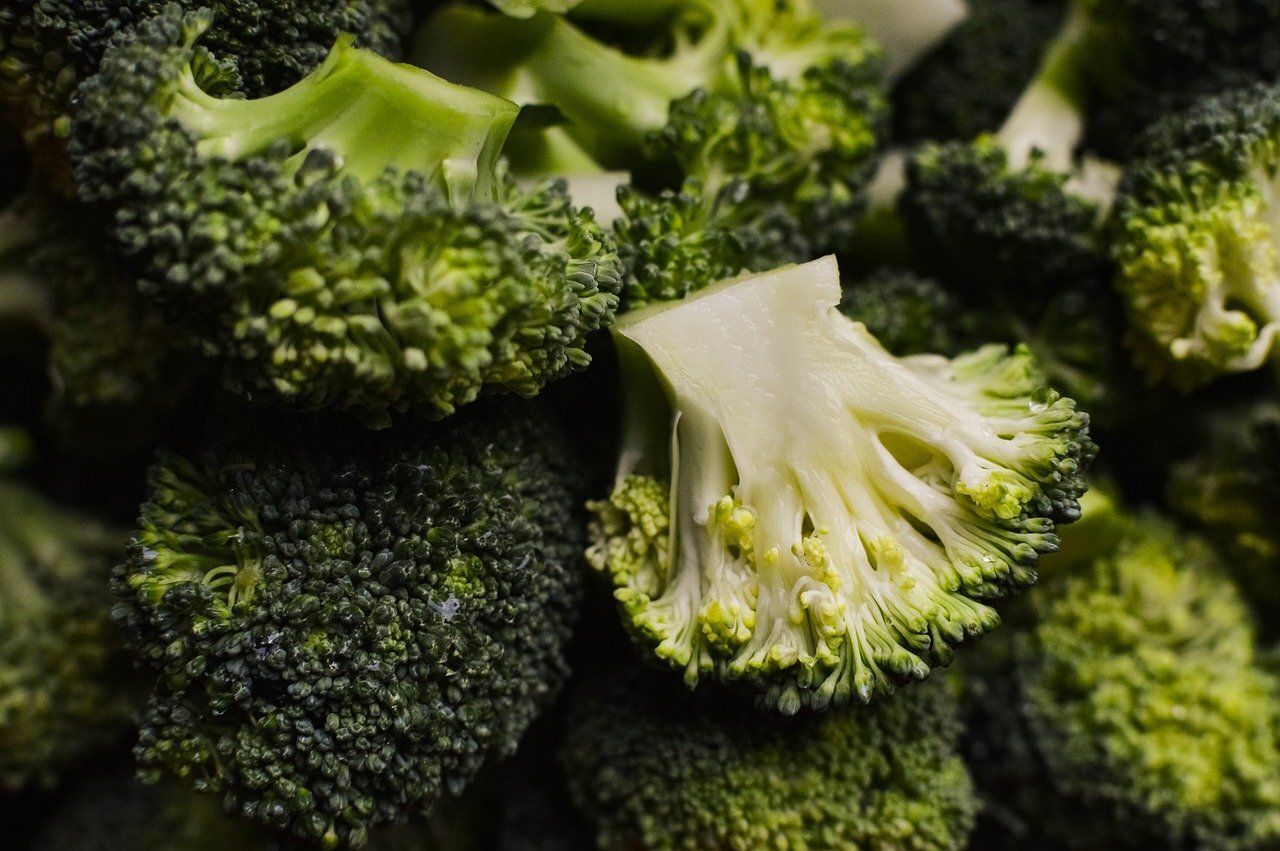- ThriveWire
- Posts
- How Not To Die
How Not To Die
Science-Backed Insights for a Longer, Healthier Life
Welcome to ThriveWire!
Hi there, and welcome back to ThriveWire, your weekly guide to living longer, healthier, and better. As we hit the halfway point of January, I’ve been reflecting on the lifestyle changes I committed to at the start of the month.
Like many of you, I’ve been trying my best to eat better, exercise more, and make positive changes in my life. It’s been tough to break old habits, but the more I explore the science of health and longevity, the more inspired I feel to make those small, daily choices that add up to a better life.
One thing I’ve noticed lately is how much these habits compound over time. Look around at people your age, and the differences are striking - what you eat, how you move, and how you care for your body over time are the game-changers. And the best part? It’s never too late to start.
This week, we’re diving into some incredible topics, from Bryan Johnson’s extreme biohacking routine to the underrated superpowers of cruciferous vegetables (yes, that humble broccoli might just save your life).
Let’s get started! 🚀
What’s Happening This Week? 🤔
The science of protein for health and longevity: 💪: Dr. Rhonda Patrick unpacks the critical role of protein in building strength, boosting metabolism, and defying age-related decline.
Longevity supplements: Are you getting what you pay for?: 💊: Dive into the hidden truths about popular longevity supplements and learn how to make smarter choices for your health and wallet.
Drinking and dying: Alcohol as a risk factor for cancer: 🍷: Uncover the stark realities of alcohol's link to cancer and why cutting back could be your best health move.
Dietary components that affect blood pressure: 🥗: Explore how everyday foods can transform your cardiovascular health.
Sweet danger: How sugary drinks fuel diabetes and heart disease: 🥤: Learn why sugary beverages are wreaking havoc on global health and what you can do to protect yourself.
Could this be the cure? Targeting protein imbalances to stop Alzheimer’s: 🧠: Exciting breakthroughs reveal how tackling protein imbalances in the brain could hold the key to defeating Alzheimer’s.
Vegan diets and muscle protein formation in older adults: 🌱: Discover how well-planned vegan diets defy stereotypes by effectively supporting muscle health in aging adults.
🎬 Bryan Johnson's "Don't Die": A Deep Dive into Project Blueprint 🎬

Bryan Johnson, the tech entrepreneur famous for his extreme biohacking endeavors, launched a new documentary, Don't Die: The Man Who Wants to Live Forever, on January 1, 2025. This film provides an in-depth look at his groundbreaking and controversial "Project Blueprint," which aims to reverse his biological age.
The Documentary's Focus
Don't Die offers an intimate view of Johnson's highly regimented daily routine, encompassing a meticulously planned diet, rigorous exercise regimen, and constant tracking of his biological markers.
The film combines Johnson’s personal journey with expert interviews, examining the science behind his methods while addressing the ethical and philosophical questions of such extreme measures.
Key Takeaways
Data-Driven Approach: Johnson relies on monitoring hundreds of biomarkers to evaluate the effectiveness of his interventions, making his strategy deeply rooted in measurable data.
Focus on Nutrition: His diet emphasizes nutrient density, avoiding processed foods and prioritizing whole, unprocessed ingredients.
Advanced Monitoring: Cutting-edge technology, including continuous glucose monitors and advanced blood tests, plays a central role in tracking his health metrics.
The Pursuit of Immortality?: The documentary explores the broader implications of radical biohacking, raising critical questions about the future of aging and the potential for life extension.
The Bottom Line
While Bryan Johnson’s methods may seem extreme, Don't Die sparks a critical discussion on the possibilities of biohacking and the future of human health. The film challenges viewers to consider how far we’re willing to go in the quest for longevity and what role technology should play in shaping our healthspans.
Catch Don't Die on Netflix to gain a thought-provoking perspective on the intersection of science, technology, and the human desire to live longer, healthier lives. 🎥
Take Charge of Your Health in 2025.
A new year is the perfect time to focus on your health and wellness goals. Lumen, the world’s first handheld metabolic coach, is here to help you jumpstart your journey to a healthier you. By analyzing your breath, Lumen provides personalized insights into your metabolism, empowering you to make better choices every day.
Imagine starting your day with tailored nutrition recommendations designed to meet your unique metabolic needs. Whether you want to improve energy, optimize your metabolism, or feel your best, Lumen is the tool to help you succeed.
🥦 The Power of Cruciferous Vegetables 🥦

Cruciferous vegetables (broccoli, cauliflower, cabbage, Brussels sprouts, kale, and bok choy) are nature’s ultimate superfoods. Packed with potent compounds and essential nutrients, these veggies provide remarkable health benefits, especially in cancer prevention and promoting longevity. Here’s why they should be a staple on your plate:
Key Compounds and Their Benefits
Glucosinolates: These sulfur-containing compounds give cruciferous vegetables their distinct taste and aroma. When chewed or digested, glucosinolates break down into powerful active compounds like isothiocyanates and sulforaphane.
Sulforaphane: A standout isothiocyanate, sulforaphane has been extensively researched for its:
Cancer-fighting properties: Promotes apoptosis (cell death) in cancer cells and inhibits tumor growth.
DNA protection: Shields cells from damage caused by carcinogens, as shown in a study in Carcinogenesis.
Detoxification support: Activates enzymes that help eliminate toxins from the body.
Indole-3-Carbinol (I3C): This compound, found in many cruciferous vegetables, converts into diindolylmethane (DIM) in the body. It’s particularly beneficial for hormone-related cancers, such as breast and prostate cancer, by modulating estrogen metabolism.
Fiber: Essential for gut health, fiber supports digestion, feeds beneficial gut bacteria, and helps reduce the risk of colorectal cancer.
Proven Health Benefits
Cancer Prevention:
Colorectal Cancer: A meta-analysis in the Annals of Oncology found that individuals with the highest intake of cruciferous vegetables had an 18% lower risk of colorectal cancer compared to those with the lowest intake.
Lung Cancer: High consumption of cruciferous vegetables was associated with a 22% reduction in lung cancer risk, according to this systematic review.
Anti-inflammatory Properties: Compounds in these vegetables help reduce inflammation, a key driver of aging and chronic diseases.
Enhanced Detoxification: Cruciferous vegetables activate detox enzymes that neutralize harmful toxins and carcinogens in the liver.
Heart Health: Regular consumption is linked to improved cardiovascular health, thanks to their fiber, antioxidants, and anti-inflammatory effects.
How to Incorporate Them into Your Diet
Mix It Up: Rotate cruciferous vegetables like broccoli, kale, and bok choy to benefit from their diverse nutrient profiles.
Mind Your Cooking: Lightly steam, stir-fry, or sauté them to preserve nutrients. Avoid overcooking, which can reduce beneficial compounds like sulforaphane.
Try Raw Options: Add raw kale, shredded cabbage, or Brussels sprouts to salads or smoothies for an extra nutrient boost.
Fermented Favorites: Enjoy sauerkraut or kimchi for added probiotics and enhanced gut health.
The Bottom Line
Cruciferous vegetables are a cornerstone of a longevity-focused diet. With proven benefits like reducing cancer risk, enhancing detoxification, and promoting overall health, they are an easy and effective way to invest in your future. Start with just one serving a day and unlock the protective power of these nutritional stars.
Make this the week you turn your grocery cart into a longevity powerhouse! 🥦
Seeking impartial news? Meet 1440.
Every day, 3.5 million readers turn to 1440 for their factual news. We sift through 100+ sources to bring you a complete summary of politics, global events, business, and culture, all in a brief 5-minute email. Enjoy an impartial news experience.
Thanks for reading this week’s ThriveWire! 💡
As always, thank you for being part of the ThriveWire community. This week’s edition is a reminder of how much power we hold to shape our health and future through simple, intentional, and science-backed choices.
If something in today’s newsletter struck a chord, I’d love to hear your thoughts or questions. Building this community is about sharing knowledge, sparking curiosity, and supporting one another in the pursuit of healthier, more fulfilling lives.
Know someone who’d enjoy these insights? Feel free to pass ThriveWire along - it’s free, and every new member makes this journey even more rewarding.
"The secret of change is to focus all your energy not on fighting the old, but on building the new." – Socrates
Stay healthy,
Andrew Courtney
Founder, ThriveWire
How did we do with todays Newsletter?Your feedback helps us make ThriveWire better. |
Disclaimer: The information provided in ThriveWire is for educational purposes only and is not a substitute for professional medical advice, diagnosis, or treatment. Always consult your healthcare provider before making changes to your diet, exercise routine, or health regimen.
